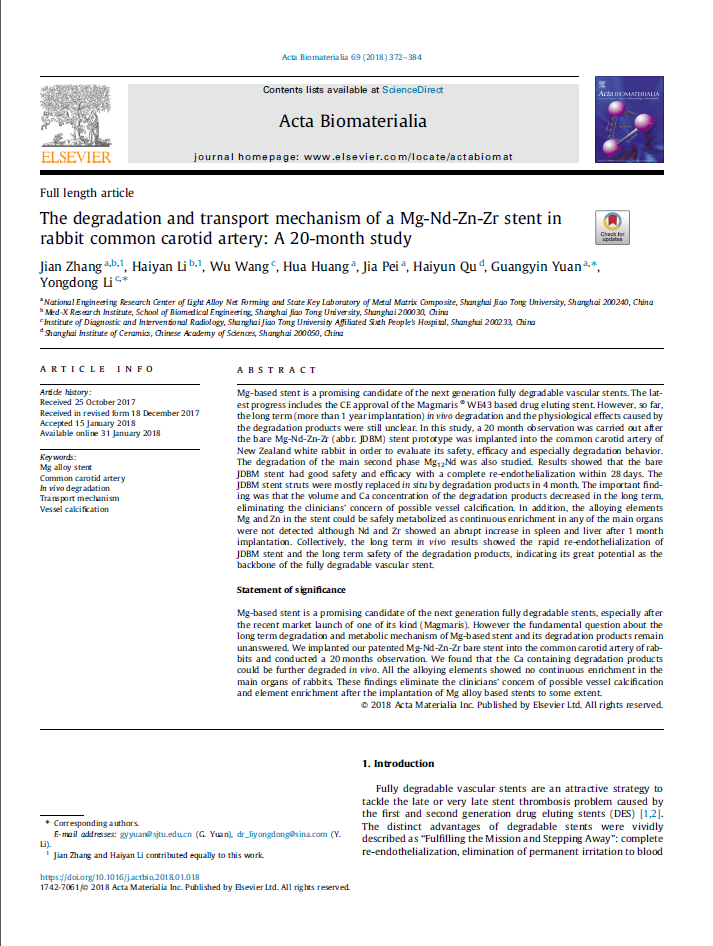Mg-based stent is a promising candidate of the next generation fully degradable vascular stents. The latest progress includes the CE approval of the Magmaris _ WE43 based drug eluting stent. However, so far, the long term (more than 1 year implantation) in vivo degradation and the physiological effects caused by the degradation products were still unclear. In this study, a 20 month observation was carried out after the bare Mg-Nd-Zn-Zr (abbr. JDBM) stent prototype was implanted into the common carotid artery of New Zealand white rabbit in order to evaluate its safety, efficacy and especially degradation behavior. The degradation of the main second phase Mg12Nd was also studied. Results showed that the bare JDBM stent had good safety and efficacy with a complete re-endothelialization within 28 days. The JDBM stent struts were mostly replaced in situ by degradation products in 4 month. The important finding was that the volume and Ca concentration of the degradation products decreased in the long term, eliminating the clinicians’ concern of possible vessel calcification. In addition, the alloying elements Mg and Zn in the stent could be safely metabolized as continuous enrichment in any of the main organs were not detected although Nd and Zr showed an abrupt increase in spleen and liver after 1 month implantation. Collectively, the long term in vivo results showed the rapid re-endothelialization of JDBM stent and the long term safety of the degradation products, indicating its great potential as the backbone of the fully degradable vascular stent.
